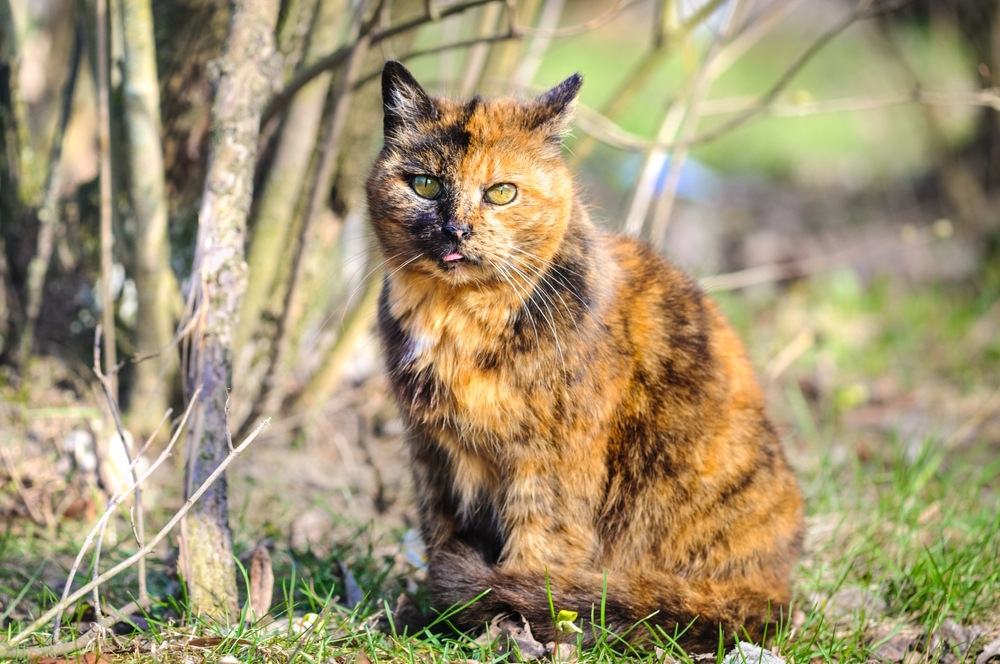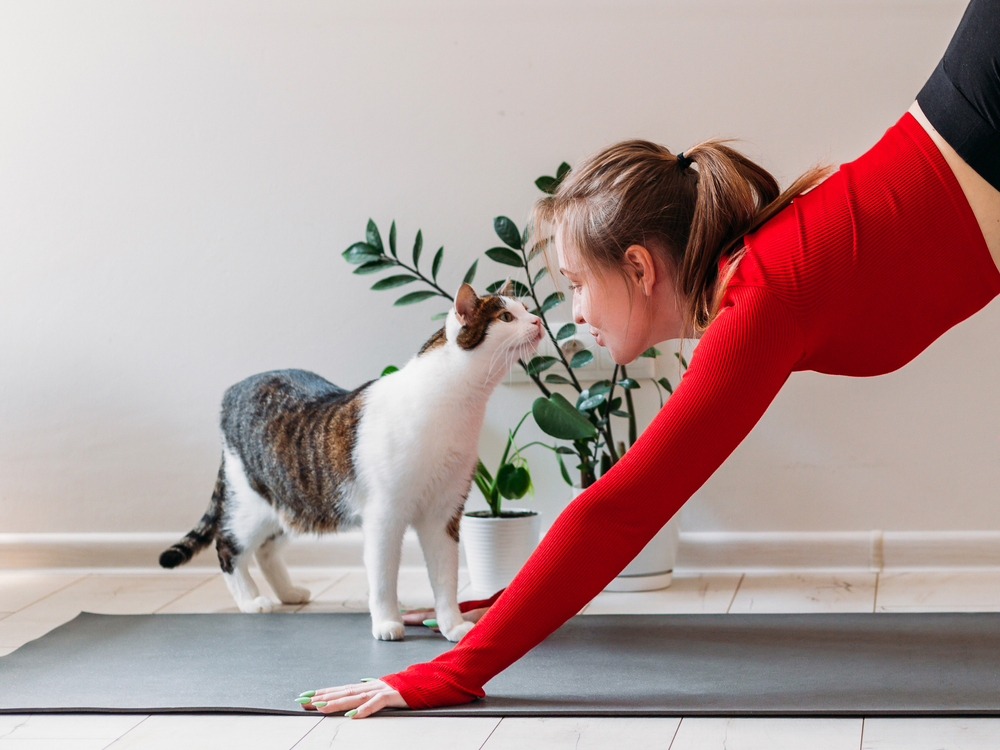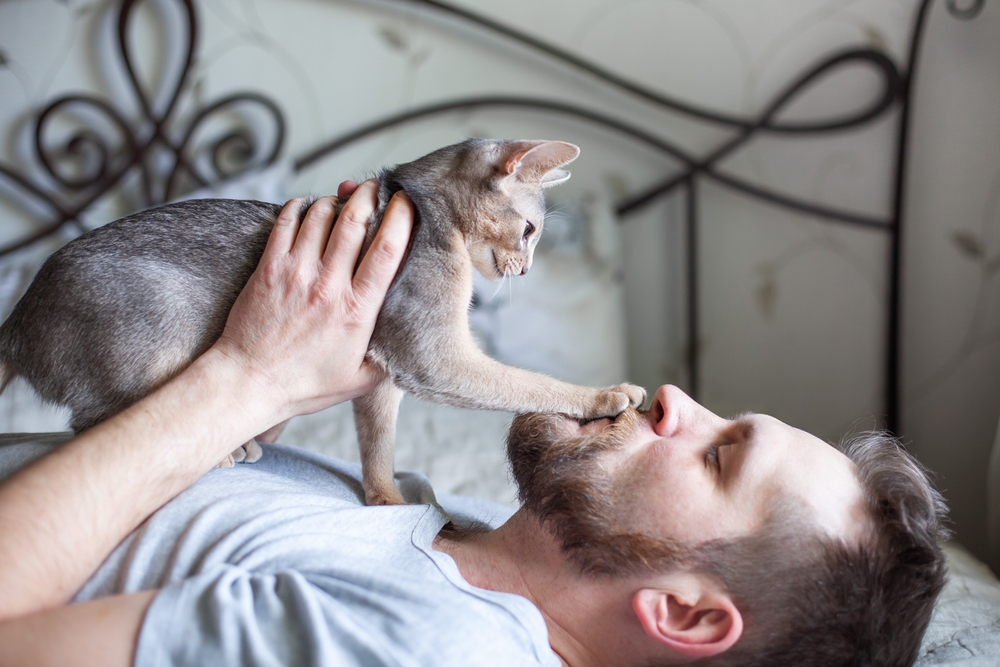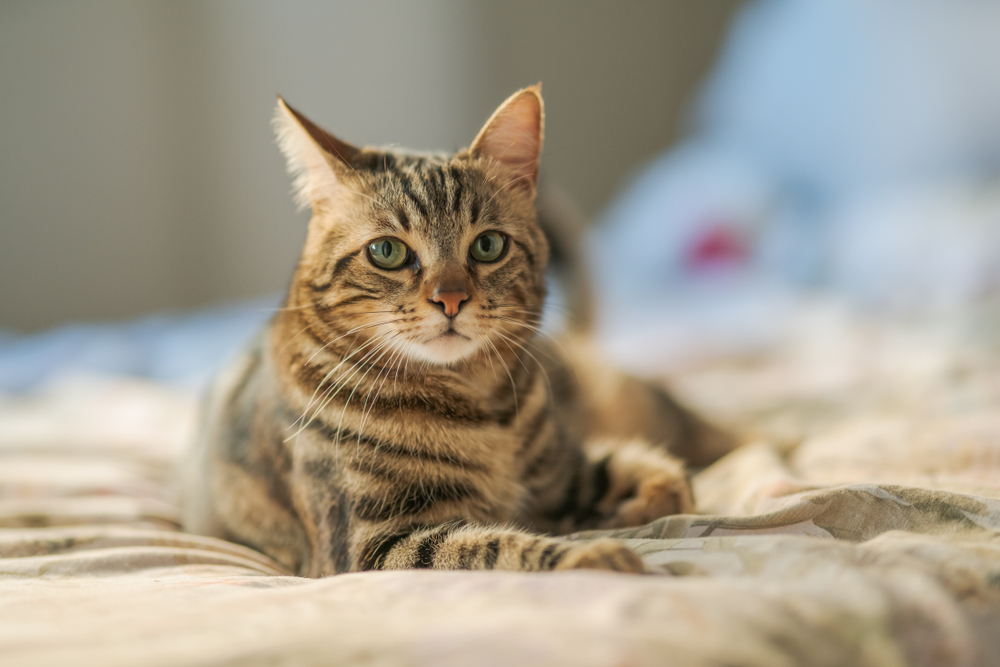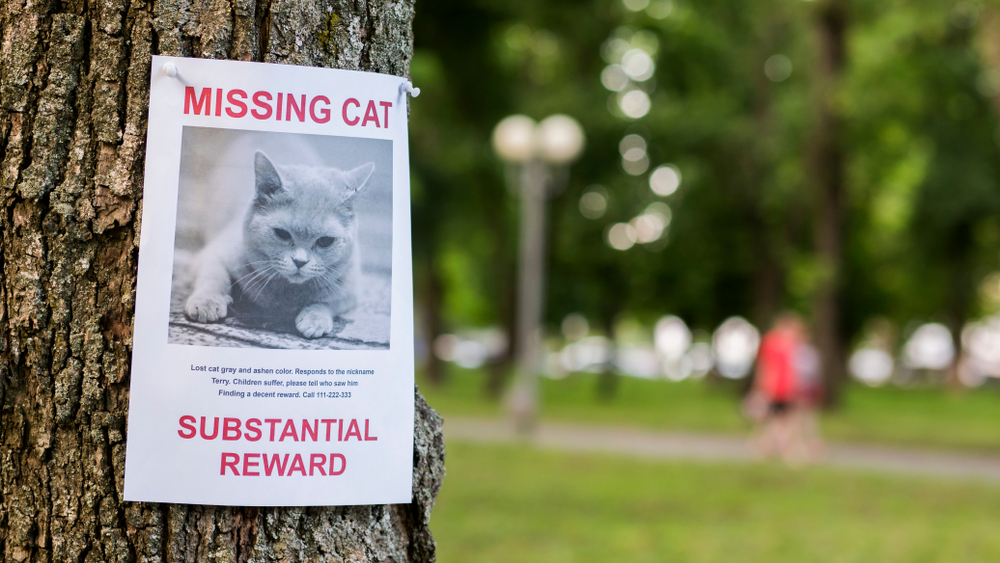Click to Skip Ahead
Cats often do things that make us owners scratch our heads. One such behavior might have you asking, “Why do cats stare at walls?” Sometimes it can seem a bit spooky, and you might wonder if your cat can see something you can’t. Below, we’ll discuss six reasons why your curious cat stares at walls.
The 4 Common Reasons Why Cats Stare at Walls
1. Your Cat Has Heard Something That You Can’t
Cats have sensitive hearing and can easily detect small sounds that pass us by. We’ve heard stories of families finding rodents or raccoons making nests in their walls after they were alerted to a specific spot by their cat staring at it!
If your cat’s ears are pricked toward the wall and appear fiercely concentrating, they may be listening to something you can’t hear, such as the sound of a family member’s car arriving home. While it looks like they’re staring at the wall, they’re concentrating on figuring out what the sound is.
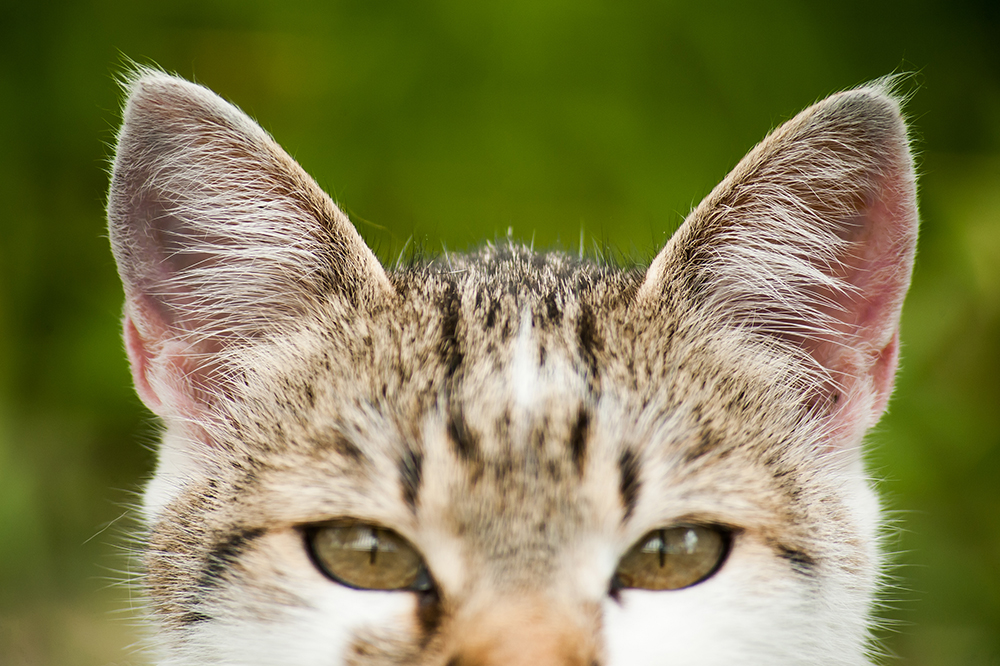
2. Your Cat Has Better Vision Than You
Cats can see far better than we can. Their peripheral vision extends to 200 degrees, compared to our 180-degree vision. Cats can also see specific wavelengths of light that we can’t, including ultraviolet light. Their eyes have more rods too, which are the cells responsible for helping see in low-light conditions. While cats can’t technically see in complete darkness any better than we can, they can see much better when there’s only a tiny amount of light.
Your cat might be watching small particles of dust as they move in subtle air currents or a tiny insect that’s all but invisible to you. So, when they’re staring at the wall, your cat may have spotted something you simply can’t see!
3. Your Cat’s Brain Works Differently Than Yours
Feline brains are wired differently than ours, and cats often stop what they’re doing and appear to freeze as they’re trying to figure something out. This can sometimes turn into a blep, which we all know as that cute face cats make when they forget to put their tongue back in their mouth. After a while, they usually give themselves a little shake and go about their day as normal.
Cats are intriguing animals who sometimes have odd interests and indulge in unusual behavior. Understanding them might be tough but providing a toy that fosters their instinctual needs and curiosities is simple.The Hepper Hi-Lo Cat Scratcher encourages playtime and offers a cat-appropriate place to scratch.
It’s unique 3-position design and cardboard scratch pad allow your cat to explore different levels, improves their health, satisfies natural feline impulses, and deters your cat from delving into places they should not. Show your cat how much you love and appreciate their quirks by gifting them the Hepper Hi-Lo Cat Scratcher. At Catster, we’ve admired Hepper for many years, and decided to take a controlling ownership interest, so that we could benefit from the outstanding designs of this cool cat company!
4. Your Cat Is Getting Older
If your senior cat is staring at the wall and appears confused or disoriented, they may be suffering from cognitive decline. This is an inevitable part of growing old for some cats. Your vet will be able to provide personalized advice on how best you can care for your elderly cat at this point.
The 2 Health-Related Reasons Your Cat Stares At The Wall
Most of the time, a cat staring at the wall isn’t a problem. After a few moments, they usually return to doing whatever they did before. However, staring at the wall can signify something more serious. Always seek veterinary advice if you’re concerned about your cat staring at the wall or if they’re doing it more than usual.
1. Your Cat May Have Hyperesthesia
Vets aren’t exactly sure what causes hyperesthesia, but besides staring at the wall.
- Skin rippling
- Enlarged pupils
- Loud howling or meowing
- Sensitivity to touch
- Excessive grooming, especially the base of the tail
It’s thought that reducing your cat’s anxiety by maintaining a routine and avoiding overstimulation can help control hyperesthesia. Your vet will likely want to conduct extensive tests before diagnosing this condition, and most cats can lead perfectly normal lives with a few minor adjustments to their home environment.
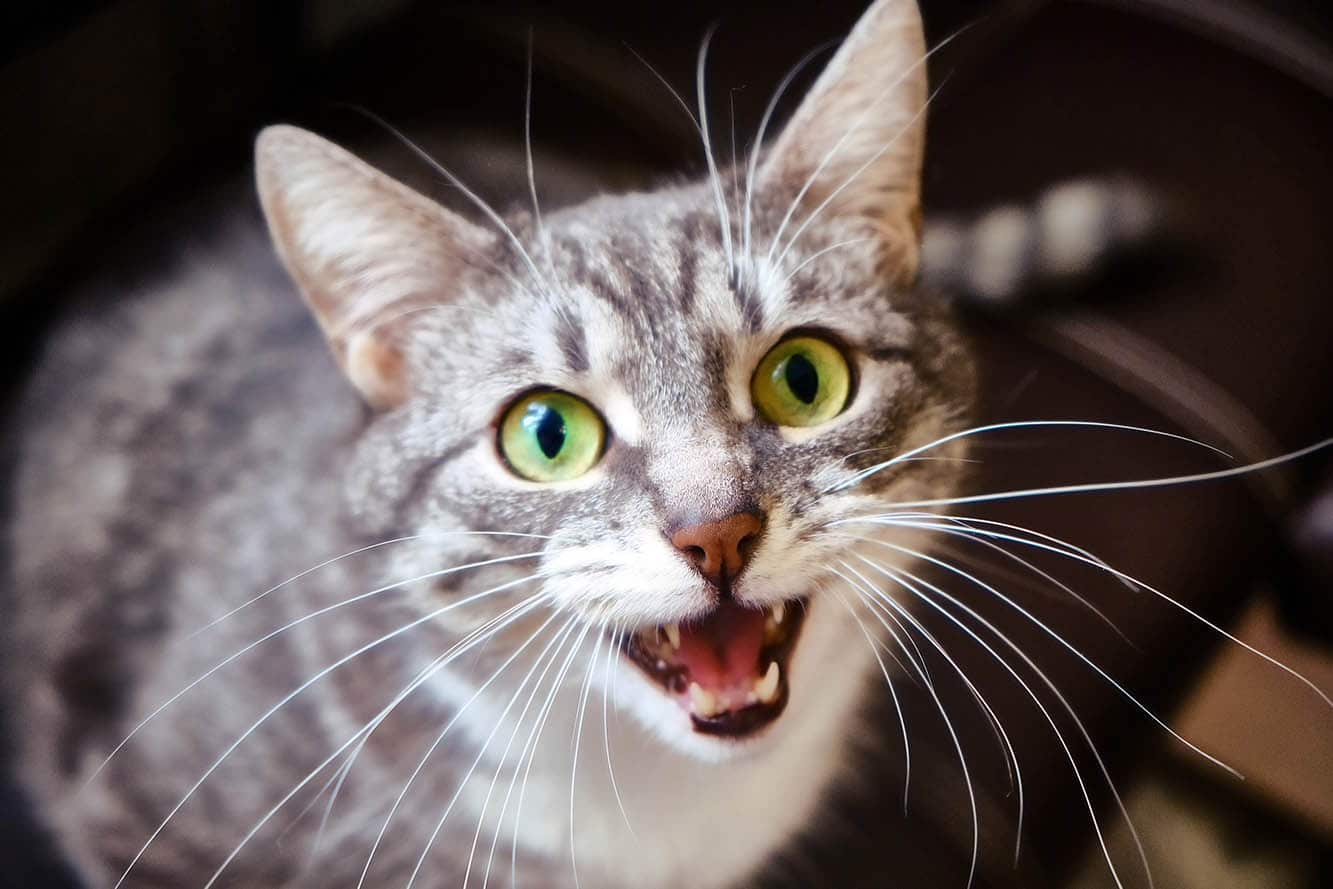
2. Head-Pressing
If you notice your cat pressing their forehead firmly against the wall and not moving away, seek veterinary advice immediately.
- Infectious diseases
- Brain tumors
- Toxic poisoning
- Metabolic disorders
- Compulsive pacing or circling
- Disorientation
- Seizures
- Vision problems, including dilated pupils
- Excessive vocalization
Head-Pressing Versus Head-Butting
Don’t confuse head-pressing with head-butting. Cats will often briefly head-butt things, including us, as a normal way of leaving their scent pheromones on areas of their territory.
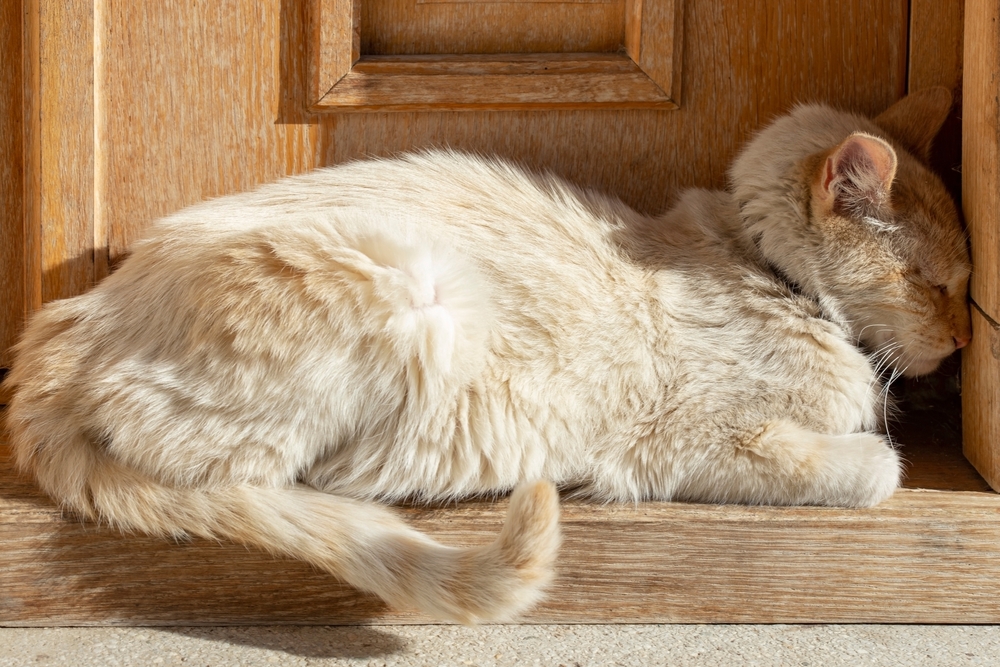
What Should Owners Do if Their Cat Is Staring at the Wall?
Most of the time, your cat staring at the wall isn’t anything to worry about. They’ve simply seen or heard something that we can’t hear. Or, something is going on in that feline brain that is giving them pause for thought. Don’t get too worried, it’s not like your cat can see ghosts, right?
Ensuring your cat has enough enrichment and interest around the house can keep them happy and healthy. You can distract your cat from their staring session by encouraging them to play or setting up a bird-watching station so they can stare out of the window instead.
Occasionally, staring at the wall can signify a more serious medical condition. If in doubt, it’s always best to seek the advice of your vet. They can give your cat a complete examination and develop a healthcare plan if your cat’s staring habits indicate an illness or injury.
See Also:
- Why Do Cats Blep? Reasons for This Behavior
- Why Does My Cat Stare at Me? Reasons for This Behavior
- Why Is My Cat Staring at the Ceiling? 7 Common Reasons
Featured Image Credit: Galexia, Shutterstock







